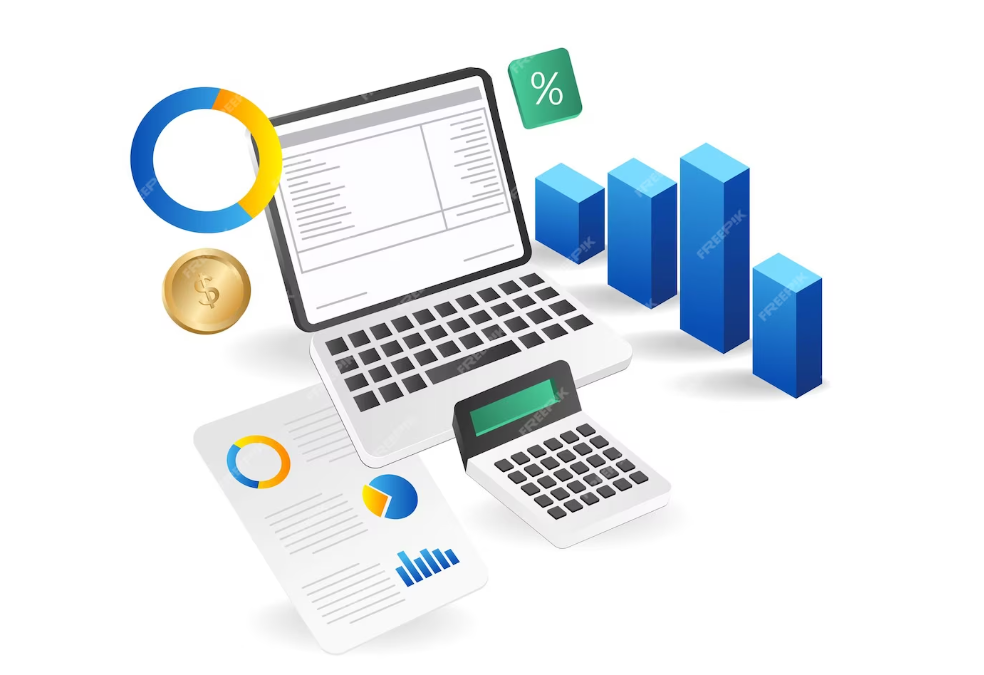In today’s fast-paced digital world, the shift towards paperless solutions has become a necessity for businesses looking to streamline their operations, reduce costs, and enhance efficiency. One area where this transition can be particularly beneficial is bookkeeping. A paperless bookkeeping system not only eliminates the need for physical paperwork but also offers numerous advantages, such as improved accuracy, accessibility, and sustainability. In this blog, we’ll explore the benefits of implementing a paperless bookkeeping system and provide you with a step-by-step guide to get started.
Enhanced Accuracy
One of the primary advantages of going paperless in bookkeeping is the increased accuracy it offers. Traditional paper-based systems are prone to errors, whether from misplacing documents or making manual data entry mistakes. In contrast, digital bookkeeping software minimizes the risk of errors by automating data entry, performing calculations, and offering features like automatic reconciliation. This accuracy can save your business time and money by preventing costly mistakes.
Improved Accessibility
A paperless bookkeeping system allows you to access your financial data from anywhere with an internet connection. Cloud-based accounting software enables you to securely store and retrieve your financial records and reports, ensuring you’re never tied to a physical office. This accessibility is especially beneficial for remote work and collaboration with accountants or team members located in different geographic locations.
Cost Reduction
Going paperless can help reduce your operational costs significantly. You’ll save money on printing, physical storage, and postage. Additionally, digitizing your financial records reduces the need for physical storage space, saving you both space and expenses. As your business grows, you won’t have to worry about expanding your storage capacity to accommodate more paper documents.
Environmental Sustainability
A paperless bookkeeping system is an eco-friendly choice that reduces your carbon footprint. By cutting down on paper usage, you contribute to environmental conservation efforts. Furthermore, you can also promote sustainability in your business operations by sending digital invoices and statements, thereby reducing paper waste.
Implementing Your Paperless Bookkeeping System
Now that we’ve established the benefits of going paperless, let’s discuss how to implement a paperless bookkeeping system:
- Choose the Right Software: Select a reliable accounting software that aligns with your business needs. Popular options include QuickBooks, Xero, and FreshBooks. Ensure that the software integrates with your other business tools for seamless data flow.
- Digital Document Management: Scan all your paper financial documents and store them in an organized digital format. Create a logical file structure for easy retrieval, and consider using cloud-based document management services such as Google Drive or Dropbox.
- Online Banking and Payment Systems: Connect your bank accounts and payment systems to your accounting software. This integration allows for real-time tracking of your financial transactions and minimizes manual data entry.
- Automate Processes: Take advantage of automation features in your accounting software. Set up recurring transactions, reminders for bill payments, and automatic categorization to streamline your bookkeeping tasks.
- Regular Reconciliation: Schedule regular reconciliations to ensure your digital records match your bank statements. This step is crucial for accuracy and helps catch any discrepancies early.
- Secure Your Data: Invest in robust data security measures to protect your financial information. Use strong, unique passwords, enable two-factor authentication, and regularly back up your data.
- Training and Support: Provide training for your team to ensure they can use the new system effectively. Most accounting software providers offer tutorials and customer support to assist with any issues.
Implementing a paperless bookkeeping system is a smart move for businesses looking to increase accuracy, accessibility, and sustainability while reducing costs. By choosing the right software, digitizing documents, automating processes, and ensuring data security, you can streamline your financial operations and free up valuable time and resources. The benefits of a paperless bookkeeping system extend beyond the convenience it offers; it’s a step towards a more sustainable, efficient, and productive business future.

